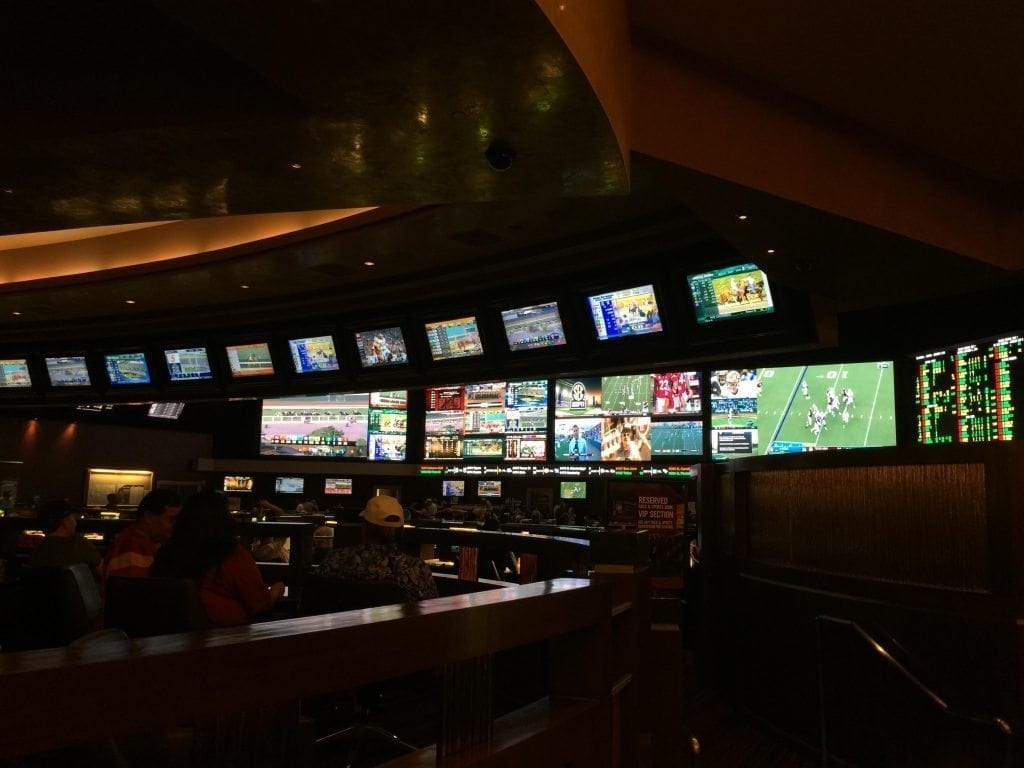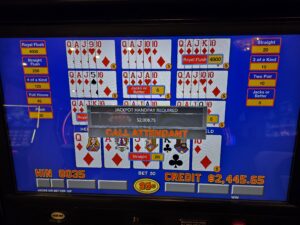
I made a bet. You may not like it. I bet on Hillary. I had to lay -175. That means the equivalent of betting $175 to win $100 or that ratio in smaller or bigger amounts. In my case, I bet $350 to win $200.
Why would I do that? Why would I bet much more than I would win?
Because she is the favorite. Her odds of winning are greater than 50/50. If her odds are 65% or greater then I am making a profitable bet. In my opinion, she’s at least above that mark.
Why bet now? Why not earlier or why not later?
In last week’s article, I said that a Hillary bet right after the GOP convention would have been a well-timed bet. Even more so, a Trump bet immediately after the Democratic convention would have been exceptional based on current odds.
Take Your Chances
Betting is not an all or nothing scenario. You must be willing and able to adapt to current market conditions and not put too much consideration into one singular thought.
Clearly if someone were to give you 100 to 1 on Clinton or 100 to 1 on Trump, you would bet that. Even at 10 to 1 on either candidate you would. Conversely, if you received very poor odds, say you have to lay 10 to 1 (bet $100 to win $10) on either candidate, then you wouldn’t bet.
So there’s a “Goldilocks Zone.” It’s where the odds aren’t so high that no one would offer them. The odds aren’t so low that no one would bet on them. The odds are just right for you to make your “investment.”
Odds are fickle. Let’s say a candidate makes a verbal gaffe, says something that becomes an overall negative in the media. That candidate’s odds will likely drop. How bad was it? Was it 2% drop gaffe, a 5% drop gaffe, or a 10% drop gaffe? How is the media reporting it? Are there other news items that are sharing the airwaves with that story, or is it all the media has to talk about for a few days?
Judgement Calls
Here is where you come in. If you’re so inclined as to gamble on this sort of thing with the intention of having an overall positive ROI, then you make the call. That’s your own judgement.
If you’re good at making these types of judgement calls, then you’ll likely be putting your money in favorable spots in the election betting cycle. Then again, if you’re good at that, you’re probably making a lot of money elsewhere, because that’s an invaluable trait.
If you’re not good, then you’ll lose over time. You’ll have a negative ROI. Sports betting, like playing poker, is an unadulterated meritocracy. The wheat is separated from the chaff. Survival of the fittest. And other appropriate idioms.
So timing matters. A skilled bettor can make well-timed bets on both candidates and be profitable. Like buying a stock at 30 and selling it at 40 then buying it at 38 and selling it for 45. If you’re betting on a candidate because you want that candidate to win, or even perhaps you want that candidate to lose, then you’re factoring in your emotion to the equation. Gambling has no time for your emotion.
In previous elections I made one bet only. I would bet on the candidate I wanted to lose. Why, you ask? Perhaps you’ve already figured out the reason. The reason for me back then, which I readily admit was immature, was that either my candidate would win or at least I’d get some money as consolation for the 4 years I was about to endure with my undesirable candidate.
Clearly that wasn’t informed betting. I was betting for reasons that were superfluous. They affected my outlook. It’s like wearing rose-colored glasses versus clear ones. I was shaded in my bias to the extent where I made poor “investing” decisions (gambling is, after-all, a series of short-term high-risk investments).
You want to find, or divine through your intuition, specific information that you believe isn’t being factored into the current market.
Informed Betting
Are you looking at poll numbers in individual counties in Ohio and comparing them versus historical data? Perhaps you’ve run many permutations of the election with RNGs to determine a baseline guaranteed Electoral College number for each candidate based on strong-leaning states. Once you do that, then you decide to run simulations with those lockdown numbers to determine the overall odds of success.
Whatever your angle may be, building the better mousetrap is what you want to do. See what others ignore. Ignore what others see.
So why did I bet on Hillary? Because I think that’s the bottom for her odds. I believe that in the debates the odds will go up to where Hillary will be more expensive. I find it unlikely that Hillary will become “cheaper” (in the betting sense, people).
What’s my angle? Experience. I think the market is overvaluing her recent illness and stumble. Everyone gets sick sometimes. The media spent countless hours showing a video of her stumbling and being assisted by her security team, and then incessantly talking about her pneumonia. I don’t believe that it’ll have a long-term effect on her odds, so give me her when she’s undervalued please.
I’m willing to bet on Trump too. I just need the right number.
David Walton's first introduction to gambling was when he was in the US Navy on a submarine in 1995. After graduating from the Navy Nuclear Power School he spent many months at sea on the USS Bergall SSN 667. When they spent three days at the island nation of Curacao he visited a casino and played blackjack and lost 200 bucks but became interested in the game. He trained himself to learn card counting and upon leaving the Navy in 1997 has worked as a gambler ever since. David's been betting sports since 2001. He won the Ultimate Blackjack Tour featured on CBS national television in 2005 for a prize of $300,000. He also wrote articles for All In Magazine from 2006 to 2008. David likes swimming and spends about 5 hours a week in the pool swimming laps. Favorite foods are sushi, Indian, Thai, and the occasional, but necessary steak, and thinks martinis should never be dirty. Liquor should be clean.













